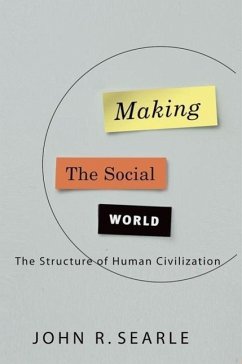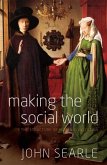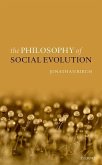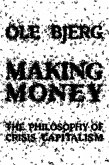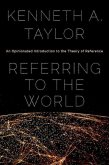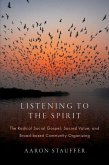There are few more important philosophers at work today than John Searle, a creative and contentious thinker who has shaped the way we think about mind and language. Now he offers a profound understanding of how we create a social reality--a reality of money, property, governments, marriages, stock markets and cocktail parties. The paradox he addresses in Making the Social World is that these facts only exist because we think they exist and yet they have an objective existence. Continuing a line of investigation begun in his earlier book The Construction of Social Reality, Searle identifies the precise role of language in the creation of all "institutional facts." His aim is to show how mind, language and civilization are natural products of the basic facts of the physical world described by physics, chemistry and biology. Searle explains how a single linguistic operation, repeated over and over, is used to create and maintain the elaborate structures of human social institutions. These institutions serve to create and distribute power relations that are pervasive and often invisible. These power relations motivate human actions in a way that provides the glue that holds human civilization together. Searle then applies the account to show how it relates to human rationality, the freedom of the will, the nature of political power and the existence of universal human rights. In the course of his explication, he asks whether robots can have institutions, why the threat of force so often lies behind institutions, and he denies that there can be such a thing as a "state of nature" for language-using human beings.
In this book, the highly influential philosopher John Searle asks a fundamental question about human beings: how is it that in a universe of physical objects, facts, and laws, we can also have "facts" like lawsuits, summer vacations, and presidents? Those facts exist, but not in the same way a mountain or a river exists. How do these very real things become facts, compared with the brute facts of objective reality? Searle's highly original view proposes that these are collective facts, agreed on by all of us, and that we assign existence to these facts by using language--in effect bringings these facts into existence by declaring them to be true
Hinweis: Dieser Artikel kann nur an eine deutsche Lieferadresse ausgeliefert werden.
In this book, the highly influential philosopher John Searle asks a fundamental question about human beings: how is it that in a universe of physical objects, facts, and laws, we can also have "facts" like lawsuits, summer vacations, and presidents? Those facts exist, but not in the same way a mountain or a river exists. How do these very real things become facts, compared with the brute facts of objective reality? Searle's highly original view proposes that these are collective facts, agreed on by all of us, and that we assign existence to these facts by using language--in effect bringings these facts into existence by declaring them to be true
Hinweis: Dieser Artikel kann nur an eine deutsche Lieferadresse ausgeliefert werden.

